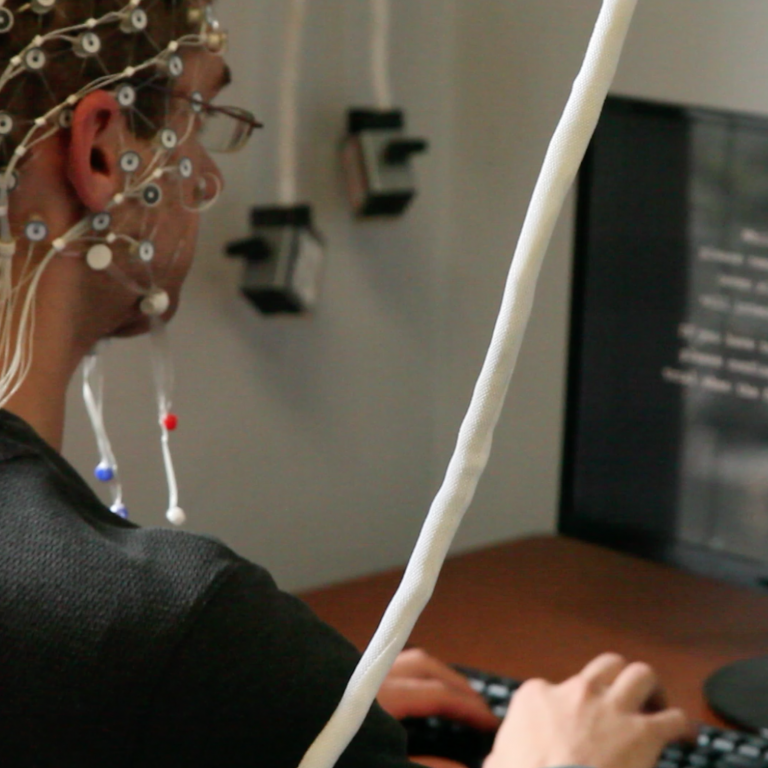by Ivan Oosthuizen, South African Care Forum
Have you noticed any changes or differences in how your parents, or grandparents think, especially as they age? Do they strike you as being wiser? Is it possible that our thinking changes as we age? Most importantly, are older people wiser?
My grandfather was a quiet man. I recall his meticulous morning routine; get up at 06:00, coffee at 06:30, morning shave at 06:45 (with a handheld Remington shaver), Springbok Radio news at 07:00, followed by his first cigarette of the day. During all of this he would say very little. I guess he wasn’t a morning person.
My personal delight was to clean his shaver. I remember the fine grey stubble cupped underneath the two shaving heads, caked together like fine snuff. One quick blow was enough to clean out the blades. Then I would clean out his ashtray; an unimaginable task by today’s standards but normal for me at the time. Perhaps my fascination with elders started right there on that red clay stoep, enclosed by a cascade of peach trees, in the backyard of a small house in the Northern Transvaal.
My memory is a kaleidoscope of colourful bits and pieces. Whenever I think about my grandparents, the story I describe above, is what stands out for me. What struck me most was how different my grandparent’s daily life was from ours, as if their world had shrunken down to the borders of their tiny abode.
When my grandfather spoke, everybody listened, it was like he spoke with authority and wisdom. As if his mere presence was sacrilege. They were respected, in their community and by their children. Their ideas and views of how the world worked was rather odd and different from the younger generation.
Have you noticed any changes or differences in how your parents, or grandparents think, especially as they age? Do they strike you as being wiser? Is it possible that our thinking changes as we age? Most importantly, are older people wiser?
BEING ABLE TO APPLY EXPERTISE SEEMS TO MATTER A LOT
Jean Piaget formulated a cognitive development model from childhood to adolescence, onto a final adult stage which came about as a combination of biological processes and experience. But what exactly happens when we become adults? Many researchers dedicated their life’s work on developing new models of aging and cognitive development and considered things like age, experience, intelligence, and creativity to name a few.
In 1986 William Hoyer found that mature adult’s ability to solve problems gradually diminish yet they show increasing competence in problem solving of their chosen fields. Hoyer’s research confirmed that with experience, information processing becomes dedicated to specific knowledge, a process called encapsulation.
Encapsulation is largely unidirectional and irreversible, and adults can, as long as they are healthy, continue to gain expertise. On the other hand, many abilities become less available for widespread use for solving problems outside a specific field of expertise.
Children and adolescents are better at gaining new knowledge, adults however, concentrate on refining existing knowledge that allow for application in real life situations.
MASTERS AT SOLVING EVERYDAY PROBLEMS?
Everyday intelligence is being able to carry out activities required to live independently. Expertise allows adults to become better problem solvers in specialised fields, but what about practical problems of daily living? Denny and Palmer conducted a study in 1981 during which 84 adults between ages 20 and 79 were given two kinds of problems;
Problem 1 was a game with 20 questions. Participants were shown 42 pictures of common objects and were told to figure out which one the examiner was thinking of by asking questions that could be answered with a yes or no response, based on how many questions it took to get the answer. The older participants were, the poorer they did on this part of the test.
Problem 2 involved situations like the following; your basement is flooding / you are stranded in a car during a blizzard / your 8-year-old child is 1.5 hours late coming from school. High scores were given for responses that showed self-reliance and recognition of causes and solutions. In this part of the test the best practical problem solvers were people in their 40’s and 50’s who based their answers on experiences of everyday living.
Research conducted by Cornelius and Caspi in 1987, showed that the benefit of experience to solve problems reach a limit at some point during adulthood. Investigators constructed an inventory of sample problems that younger middle aged or older adults were likely to experience as consumers in managing a home such as resolving conflicts with family members, friends, and co-workers, and dealing with technical information for each situation.
Four possible responses were presented. This time everyday problem-solving capability did not drop off after middle age but improved into late adulthood. Moody Thomas and Danny completed a similar study in 1989 and found, as in the Cornelius and Caspi study, that older adults showed no age deficits, and they did no worse than younger adults in solving their own problems and were most satisfied with their solutions.
THINKING AS AN INTEGRATIVE PROCESS
Mature adults can solve problems they encounter due to their ability to think integratively; integrating new experience with existing knowledge. Mature adults interpret what they read see or hear in terms of meaning. Instead of accepting something at face value adult’s filter it through their own life experiences and learning.
In 1992 in a series of studies involving college students and older adults who were asked to summarise stories. One was a fable about a wolf who promises to reward a crane for removing a bone stuck in the wolves’ throat. The crane dislodges the bone with its beak, a manoeuvre that involves putting its head into the wolves’ jaws and then asks for the promised reward. The wolf replies that the cranes reward is to getaway alive.
Both age groups recalled the story in detail. Student’s summaries were longer and more detailed than the older adults, whose average age was 74 and tended to be shorter, more to the point and adults integrated the moral of the story with observations based on experience and real-world learning.
The thinking of the older adults was more flexible than the young ones. Integrative thinking has social and emotional implications. People may need to be capable of integrative thought before they can become moral or spiritual leaders. Integrated thinking and subjective interpretation are key features of what can be seen as a special mature stage of intellectual development namely post formal thought.
THINKING IS REFLECTION
American philosopher and educator John Dewey first defined reflective thinking as “A complex form of cognition as active, persistent, and careful consideration of information or believes, in the light of evidence that supports them and conclusions to which they lead”.
Reflective thinkers question facts, draw inferences, and make connections. Reflective thinkers can create complex intellectual systems that reconcile apparent conflicting ideas or considerations. The capacity for reflective thinking is thought to emerge between the ages of 20 and 25.
It’s only thereafter that the cortical regions of the brain can handle higher levels of thinking, at the same time the brain is forming new neurons and synapses and dendritic connections. Thus, though most adults develop the capacity to become reflective thinkers, only a few attain aptitude in the skill and even fewer can apply it to various kinds of problems. For many adults, a college education stimulates progress towards reflective thinking.
POST FORMAL THOUGHT – INCREASED COMPLEXITY IN THINKING
Research conducted in the 1960s and early 1970s wanted to investigate how young, middle aged and older adults would do on the kind of tasks developed by Jean Piaget to measure cognitive development in children. When all the adults gave similar answers to the two young children researchers interpreted this as possible evidence of regression to earlier stages of thought.
But later studies suggested that some older adults gave wrong answers because their thinking took more factors into account. Investigators thus began to wonder whether such childlike responses might actually represent an advance in cognitive development as a stage beyond formal operations. Were all the adults thinking in more complex ways?
A number of researchers suggested that mature thinking may be far richer and more complex. Thought in adult hood appears to be flexible, often adaptive, and individualistic. It relies on intuition as well as logic it can surpass particular systems of thought sometimes called post formal thought and is the ability to deal with uncertainty, inconsistency, contradiction, imperfection, and compromise.
Postformal thinkers see shades of grey, and postformal thought, like reflective thinking, enables adults to go beyond a single answer and to reconcile or choose among other conflicting ideas. Post formal thought may develop through experiences that open up new ways of looking at things.
In 1970 William Perry conducted a study involving 67 Harvard and Radcliffe students. He found that their thinking progressed from rigid to flexible, and ultimately, to freely chosen commitments. As students encounter a wider variety of ideas, they recognise the existence of several different points of view, and they also accept their own uncertainty.
Jan Sinnott (1984, 1998, 2003), another prominent researcher, proposed several criteria for post formal thought:
- Shifting Gears – the ability to think within at least two logical systems.
- Problem Definition – the ability to define a problem as falling within a class or category and to define its parameters.
- Process Product Shift – the ability to see that a problem can be solved either through a process or through a product.
- Pragmatism – the ability to choose the best of several possible logical solutions.
- Multiple Solutions – The awareness that most problems have more than one solution.
- Awareness of Paradox – recognition that a problem or solution involves inherent conflict.
- Self-referential Thought – A person’s awareness that he or she must be the judge of which logic to use.
A LIFE SPAN MODEL OF COGNITIVE DEVELOPMENT
K.W Schaie and S.L. Willis first proposed a full lifespan model of cognitive development from childhood through to old age. Schaie considered intellectual development as proceeding according to changes in what is important to people and how they respond to their experiences.
The stages in their model represents transitions from what I need to know; to practical integration of knowledge; to search for meaning and purpose. The seven stages are as follows:
Children and adolescents acquire information and skills mainly for their own sake or as preparation for participation in society.
Young adults no longer required knowledge merely for its own sake they use what they know to pursue goals such as career and family.
Middle age people use their minds to solve practical problems associated with responsibilities.
People in the executive stage which may overlap with the achieving and responsible stages are responsible for societal systems or social movements and they deal with complex relationships on multiple levels.
people who enter retirement reorganise their lives and intellectual energies around meaningful pursuits that take the place of paid work.
Older adults who might let go some social involvement and whose governor to functioning may be limited by biological changes are often more selective about what tasks they exert effort on.
Near the end-of-life once reintegration has been completed older people my create instructions for the disposition of price positions make Funeral arrangements provide oral histories or write their life storeys as a legacy for their loved ones.
- 1. Acquisitive Stage (childhood and adolescence)
- 2. Achieving Stage (late teens, or early twenties, or early thirties)
- 3. Responsible Stage (late thirties to late sixties)
- 4. Executive Stage (thirties, or forties through middle age)
- 5. Reorganizational Stage (end of middle age, beginning of late adulthood)
- 6. Re integrated Stage (late adulthood)
- 7. Legacy Creating Stage (advanced old age)
Schaie’s model also calls attention to an important development in late adulthood where we see a focus on tasks that have personal meaning, this may fit into what we call wisdom.
WISDOM – MANY MEANINGS BUT DIFFICULT TO DEFINE
Wisdom, like intelligence and creativity, has many meanings but not a precise definition. Yet most people know it when they see it. How can we describe wisdom? Is it intellectual, emotional, spiritual, or all three? Do people become wiser as they get older as is commonly believed or is wisdom independent of age?
IMPORTANT PSYCHOLOGICAL CONCEPTS ABOUT WISDOM
The classical approach was to view wisdom as an aspect of late life personality development. Today, some theorists, take a more contextual perspective describing wisdom as a cognitive ability. Others see wisdom as an integration of intellect and emotion. Another approach, which has roots in eastern philosophy, focuses on the spiritual domain. Let’s look at each of these approaches:
1. Late Life Personality Development
For Erik Erickson, wisdom is a virtue that results from successful resolution of the last of eight conflicts in personality development, namely that of integrity versus despair. Wisdom means accepting the life one has lived without major regrets. It also involves accepting one’s parents as people who did the best they could. In summary it also means a realistic acceptance of imperfection in oneself, in one’s parents, and in life itself.
2. Cognitive Definitions
Vivian Clayton of the University of Southern California (at that time), defined wisdom as an ability to grasp paradoxes, reconcile contradictions, make, and accept compromises. Whereas intelligence can figure out how to do something, wisdom asks if it should be done?
John A. Meacham, a psychologist at State University of New York at Buffalo in 1990, claimed that wisdom was more likely to be an attribute of youth, because older people know too much and are too sure of their knowledge. According to Meacham wise people balance the acquisition of knowledge with a recognition of its inherent fallibility. Instead, wisdom comes from knowing less or becoming less positive about what one knows.
3. Empirical Definition
Baltes and his associates see wisdom as a special kind of expert knowledge. Wisdom for Baltes is expert knowledge of the fundamental pragmatics of life, permitting excellent judgement and advice about important and uncertain matters.
Three other criteria are; awareness of life’s uncertainties; knowledge of the relativism of values, goals, and priorities; and an understanding of the importance of context and societal change.
Wisdom, in Baltes’s dual-process model is part of the pragmatics of intelligence, a cognitive domain that remains stable and may even continue to improve into late adulthood.
Not everyone, of course, becomes wise, just as not everyone becomes an expert in chess or computers. In fact, Baltes suggests, wisdom can be expected to be fairly rare. Their key finding is that wisdom, though not exclusively attributed to old age, is one area which older people, especially those who have had certain kinds of experiences, can hold their own or better.
4. Integrating Intellect and Affect
Labouvie-Vief, one of the most prominent theorists defines wisdom as an integration of two basic modes of knowing; logos which is objective, analytical, and rational; and mythos which is subjective, experiential, and emotional.
Full mature mental functioning consists of a continuous dialogue between mythos and logos in which one mode provides a richness in experiences, and the other stability.
This wisdom does not necessarily come with advanced age, in fact it appears to peak in middle age. Nor is it simply expertise. What makes people wise is not merely specialised knowledge, but rather knowledge of issues that are part of the human condition.
Wisdom consists in one’s ability to see through and beyond individual uniqueness and specialisation into their structures that relate us in our common humanity.
5. Wisdom and Spiritual Development
Many eastern cultures, rather than focusing on rationality and knowledge, seeks detachment from the conscious mind as opposed to inner spiritual growth.
Some investigators, influenced by eastern philosophy, believe that wisdom is based on spiritual development and is likely to develop late in life. Achenbaum and Orwoll in 1991 defined wisdom as three interrelated facets:
- i) Intrapersonal Wisdom – which is self-examination, self-knowledge, and integrity.
- ii) Interpersonal Wisdom – which is empathy, understanding, and maturity in human relationships.
- iii) Transpersonal Wisdom – which is capacity to transcend the self and strive towards spiritual growth.
Transpersonal wisdom, similar to the non-personal consciousness of the vendatic philosophy of Hindu India, is the key to the other two since it provides a vantage point beyond the narrow concern of self from which to observe oneself and one’s relationships contemplation can foster all three facets of wisdom.
IN CLOSING
Research findings seems divided on the correlation between age and wisdom. There is no specific evidence that old age is the only key to wisdom, as wisdom is also present in middle age and young people.
However, certain life experiences tend to be wisdom-producing in nature, thus given older people a slight advantage. Wisdom is also challenging to define; if we define wisdom as a form of self-transcendence, it requires a long time achieve. In many researcher’s minds this is easier achieved in old age, when one is free from the challenges of daily labours and one possesses the time and freedom to reflect on life and society’s problems.
Georg Friedrich Hegel once wrote: “The owl of Minerva spreads its wings only with the falling of the dusk.” Minerva is the Roman name of the Greek goddess of wisdom and philosophy, Athena, and is associated with the owl.
The meaning of Hegel’s saying is that wisdom takes flight only at the end of the day, after the day’s main events have taken place. His particular point was that it is only at the end of human history that human beings can come to understand history’s developmental logic.
In fact, our coming to understand history is part of this developmental logic; and once we fully understand we are reconciled to history, we would not have wanted history to have gone differently in any important respect.
My personal interpretation of Hegel’s words is that human beings tragically come to understand things fully only when it is too late. In this sense, I belief the elderly provide a deeper insight and are better equipped to provide moral guidance and insight to life’s problems and challenges.
Maybe the real question isn’t if older people are wiser, but rather, are we doing enough to listen to their wisdom?
References
- Stenberg R.J., Sternberg, K. (2012). Cognition: Cognitive Neuroscience, Attention and Consciousness (6th Edition, pp 92 – 185). Canada. Wadsworth Cengage Learning.
- Kaliski S. (2006). Psychological Assessment in South Africa: The Elderly (1st Edition, pp 271 – 185). South Africa: Oxford University Press.
- Papalia, D.E., Sterns H.L., Feldman, R.D., Camp, C.J. (2007). Adult Development and Aging: Mature Thought, Wisdom and Moral Intelligence (3rd Edition, pp 230 – 268). New York. McGraw Hill Higher Education.
- Baggini, J. (2018). How the World Thinks – A global history of philosophy. London. Granta Publications.
About the author:
Ivan is a freelance writer and creates custom content for digital and print media. His keen eye for detail, critical research skills and love for storytelling makes him a well read and sought-after craftsman. Ivan has more than 25 years of experience in a variety of industries including Education, Commerce, Defence, Medicine and Executive Management and he can be contacted via email at ivan@pencilthis.com.



